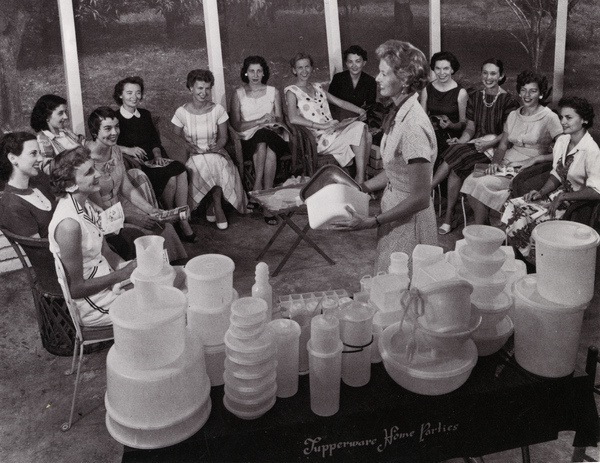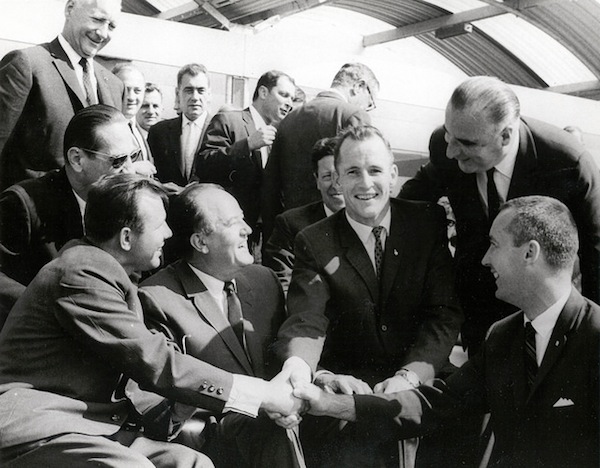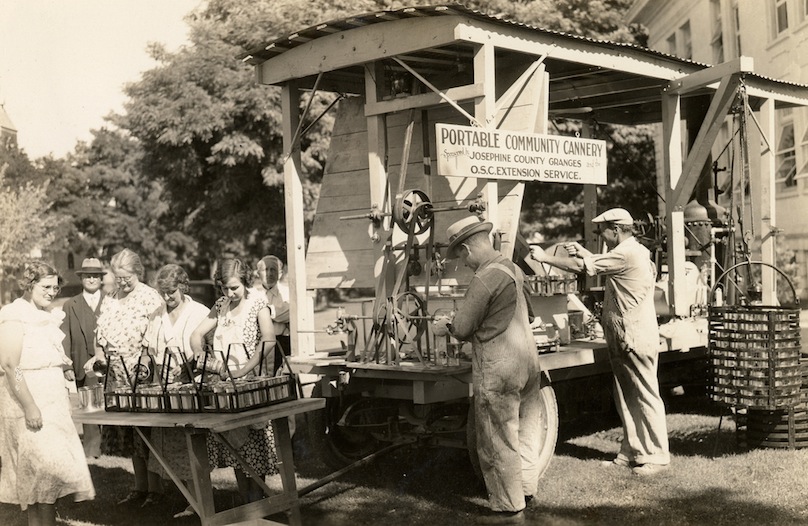The Event Manager’s Guide to Managing Event Volunteers
“Every volunteer brings individual talents and as a manager it’s your job to draw these out – they learn new skills, develop as people, and feel they’ve contributed to a good cause. In return, you get an engaged team for your event”
Kelly O’Connor, Volunteer Manager at Emmaus.
With catering, entertainment, marketing, risk assessments, we know just how much you’ve got on before any event. And on top of it all you need to find and organise volunteers too. It’s really tempting to jump straight in and start the recruitment campaign. But you need to be prepared. Supporting event volunteers is completely different to managing paid staff. There’s no payment structure, there’s no contract. You’re relying on goodwill and co-operation. Luckily, you don’t really need specialist skills or training to be a good event volunteer manager. You just need common sense and a good imagination.
Picture yourself as a volunteer at your own event. How would you like to be treated? Are you made to feel welcome and useful? Working out how you’re going to inspire your volunteers is a great place to start, that and this guide to managing event volunteers. Now, we know time is precious, so let’s make a start….
Getting Started
Why do people volunteer?
In order to appeal to volunteers on the day you’ve got to appeal to what they want. So, what do people want when they volunteer? Some of the main motivations for volunteering are:
– Values or beliefs
– Gaining insight
– Developing skills or experience
– Building confidence
Understanding a volunteer’s motives is vital to the whole process of managing volunteers at an event. So keep these at the front of your mind when you are creating roles and deciding on tasks, and you will help ensure happy volunteers on the day.
Create a volunteer policy
Formal or informal, having a volunteer policy will help you define the role of volunteers at your event. It should pull together the various policies and procedures that affect volunteers – recruitment, expenses, health and safety and so on. What you include in your policy is flexible, but it’s really important to have a clear idea about why you want to have volunteers at your event, and the kind of volunteers you need before you get started. The process of writing a volunteer policy is as important as having one – it will help you address the benefits and challenges of working with volunteers. As a guide the Citizen’s Information board has a great volunteer policy checklist you should consult before writing your own.
Write clear volunteer role descriptions
It’s important to cater for a range of volunteers with the roles on offer at your event. From fundraising to social media there’s a lot more volunteers can help with than extra support on the day (though that’s important too!). A volunteer wanting work experience will want different things to those looking to meet new people. Create roles to suit varying skills, interests and motives. Your volunteer role should be clearly defined, but adaptable.
Here are some headings to help you structure your role descriptions:
- Title of role (be specific)
- Purpose of the role – the difference it will make to the overall cause
- Main tasks – are there any physical requirements?
- Skills/ Qualities / Experience needed – desired and essential
- Minimum time commitment
- Location
- Training
We strongly recommend including a supervisor role for each kind of volunteering on offer at your event. This not only creates an opportunity for people looking to take on more responsibility, volunteer supervisors are also great for helping you manage your team of volunteers on the day.
Volunteers should not feel overloaded in their role, but it is also important they are engaged in productive tasks and get a sense of achievement from their voluntary work.
How do I find volunteers for my event?
There are lots of ways to find volunteers for your event and it’s best to use a mix if you want to attract a range of volunteers.
Offline:
Word of mouth
Local press
Direct mail
Posters and leaflets
Volunteer centres like the Volunteer Centre Camden
Message boards
Online:
Social Media
Your website
Volunteer directories such as Volunteer Now
Email
The Message
This is the tough bit. Writing adverts to recruit volunteers is a lot trickier than people think. There’s a lot of competition for volunteers (they could be working at Glastonbury after all). In order to compete, you need to really sell the benefits of working at your event. The image and the message you use are extremely important to the marketing process.
The secret to writing an eye-catching advert is understanding that you’re selling a product. Highlight your unique selling point. Target your potential volunteers with what they want from volunteering. Convince them you will meet their expectations. Keep it snappy and don’t forget to tailor your message to speak directly to under-represented groups.
How do I recruit volunteers for my event?
Getting the right volunteers doing the right jobs takes planning and time, but it’s vital if you want productive and happy volunteers at your event. Here are our top tips for recruiting volunteers:
- Make it clear to all volunteers that there is a selection process, and not everyone will be selected
- Advertise in a variety of places
- Make applications simple, and offer a variety of methods. Online, by phone and by mail
- Your selection process needs to be appropriate to the role, and all volunteers need to go through the same process for the same roles.
- It is important to have a flexible process for selecting volunteers, which is open, fair and effective. All volunteers should have equal opportunity.
Diversity and equality:
Having a diverse range of volunteers at your event will make it more exciting and dynamic. As well as following good practice in management of volunteers generally in all instances, here are some main points to consider when appealing to under-represented groups.
Older People & Volunteering:
- Make them feel valued for the unique skills they can offer
- Communicate age is not a barrier to involvement
- Offer a range of roles that are adaptable to suit the changing health of an older person, offer varied commitment levels too
- Give older volunteers the opportunity to undertake training to develop their skills in a variety of formats to suit different methods of learning
Young People and volunteering:
- Offer progressive and varying roles, which benefit young people in terms of skills, new challenges and work experience
- Make it group-friendly, if a young person would like to volunteer with friends
- Provide a friendly and relaxed environment, with support from an identified person when they need it
- Never leave a young person out of pocket. Consider offering an allowance or re-imbursements in advance
- Create opportunities for young volunteers to come together socially
- Child protection when working with volunteers under 18
- Parental permission in writing if under 16
People with disabilities and volunteering:
It’s extremely important to respect a person’s sense of independence when managing volunteers with disabilities. If you’d like more information Volunteer Now has some great advice about hiring and managing volunteers with disabilities.
Before the Event
Make sure your colleagues feel confident about working with your volunteers at the event. Brief them on what they can and can’t ask volunteers to do. If you intend on running future events in a similar way, it maybe worth inviting staff to attend a future event as volunteers so they have a better understanding of what it’s like.
Typically event volunteers may not have time/want to attend a formal induction. Still, it’s great to be able to still give them all the information found in a typical induction beforehand. Volunteer Now have created a great volunteer induction checklist, take a look and see what information you can send them in advance. Not only will this get your volunteers excited for the day, it means the ‘induction’ at the event can be short, task specific and site specific.
On the Day
“My top tip is to make sure volunteers feel part of the bigger picture – it’s not just what they do on the day, it’s how what’ve they’ve done has contributed to the purpose. That could be selling a jumper to raise vital funds, or tweeting about the event online to raise awareness”
Kelly O’Connor, Volunteer Manager Emmaus

Image via Florida Memory on Flickr
Managing event volunteers is all about keeping them motivated, happy and having fun! Here are some practical things you can do to ensure you’re volunteers are properly managed on the day
A Warm Welcome
Have a designated person to greet volunteers on the day. This is the perfect opportunity to thank them for their time and emphasise how important their contribution is going to be before they get started. It’s also a good time to run through things such as health and safety. Make sure everyone knows each other before you get started, and give them a chance to ask any questions. This is also a good time to ensure the volunteers have everything they need (meal vouchers, uniform, secure storage). Set them up to succeed!
Give your volunteers specific tasks
Make sure every volunteer knows what they are expected to do. Switch volunteers between the more laborious and unpleasant tasks to make it fair.
Give your volunteers structure, but freedom too
We know this sounds a little contradictory. Structure in the sense that you should make sure everyone knows how long they will be needed, and have a clear system for breaks. Freedom meaning be flexible with your volunteers and make sure they feel empowered.
Who’s responsible?
Make sure volunteers know who to go to if they need help with a task. It’s best to have small groups of volunteers reporting to a respective team leader or volunteer supervisor.
Check in with your volunteers
Recognise when people want to take on more responsibility, and be flexible if a volunteer is struggling with a task. It’s important to make sure volunteers are happy working with each other too.
Post Event
It’s time for a good debriefing. Thank your volunteers for their time, formally recognise their hard work, and don’t forget to ask for feedback. Their experiences will be invaluable when evaluating how successful your volunteer programme has been.
Not only is it important to thank your volunteers for their contribution to your awesome event, share their successes internally too. It’s a great way of raising awareness of their contribution.
Think about how you’ll keep your volunteers on board for next time. Something like a special Facebook group will help volunteers stay connected. It’s a great place for them to stay in touch, share photos, and sign up for future events.
If you can, organise a special volunteer after party to say thank you. Especially good if you’ve got lots of young’uns on board, and who doesn’t like a celebratory drink.

Common problems
No-shows
There is always a possibility volunteers won’t show up on the day, here are a few tips on how to mitigate the risks:
– Ensure you have a good relationship with your volunteers. People who are most motivated to volunteer care about their impact, so make them feel part of the bigger picture from the start. This could be done with regular newsletters leading up to the event. It is also a good idea to create a closed Facebook group for volunteers to keep them in the loop, and give them a chance to get to know one another beforehand.
– Ask volunteers to confirm their attendance a few days before the event and ask them to get in touch if circumstances change in the run up to the day.
– Don’t rely on one method of communication if you are concerned about a volunteer not showing up, it’s important to give them a friendly reminder to let them know you’re counting on them.
Volunteers not getting on:
Be aware of how everyone is getting on. If personalities are clashing, address any issues that arise and be prepared to move people on to different tasks. Be supportive and sympathetic.
Overworked volunteers:
Consider how you are going to ensure that everyone gets a break. Make sure you have enough volunteers available on the day to ensure everyone gets regular breaks. Switch volunteers between the harder and less enjoyable tasks.
The Legal Stuff
Insurance
Make sure you have insurance to cover your volunteers. Your insurance should not only cover the volunteers, but also any activities they will be carrying out and if there is an age limit.
Criminal Records
Whether or not your volunteers will be working with children or vulnerable adults, the Charity Commission strongly recommends you getting a DBS check (formerly known as CRB checks) on them. These checks are free for volunteers.
Volunteer Rights
It is possible for volunteers to claim the same rights as employees if your company does not clearly distinguish between its paid staff and volunteers.
A written role description for volunteers helps make it clear what the expectations are. A role description should not be confused with an employment contract or job description.
Payment
If a volunteer receives any type of reward or payment other than expenses, they may see this as a salary and they could be classed as an employee or worker.
Remember, volunteers do not come for free. However, they can provide excellent value for money if you are willing to invest your time in to properly managing this resource in order to get the best value out of it. Whatever the nature of their role, event volunteers will be more productive and satisfied if event organisers understand the motivations and ethos behind volunteering and genuinely value the work they have done.
20 Bedford Way
If you are looking for an affordable event venue in central London then 20 Bedford Way has excellent facilities – read more about our main conference space Logan Hall or give us a call on 020 7612 6143 to arrange a visit or ask any questions.
Further reading
Volunteer Now
Attracting and Selecting Volunteers
Gov
Header Image via OSU Special Collections & Archives on Flickr.




